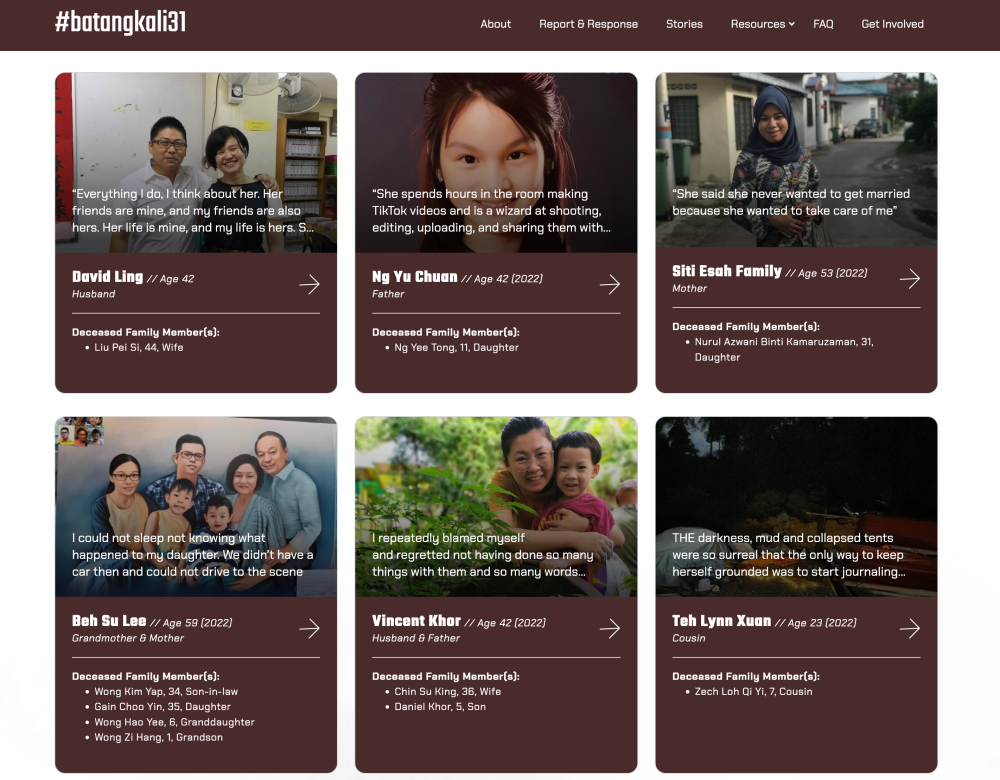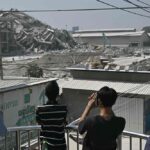KUALA LUMPUR, March 29 — The Batang Kali landslide on December 16, 2022, left an indelible mark on Malaysia’s history, claiming 31 lives — 13 of them children.
One of the country’s deadliest landslides in recent years, the disaster underscored both nature’s destructive force and systemic vulnerabilities.
What began as personal grief has now evolved into a powerful platform for healing and advocacy with the launch of batangkali31.com.
The website serves as a digital memorial where survivors reclaim their narrative and continue to demand accountability for what they argue was more than just an unfortunate natural disaster.
“I think after the incident a lot was reported in the news, with opinions from various parties.
“Most of it was surface-level and didn’t really capture what transpired that night.
“This platform gives us a space to tell our side of the story and respond to the Public Works Department’s (PWD) report,” the website’s author, Loh Teng Shui, told Malay Mail in an interview recently.
The final report by the Landslide Working Group Task Force (JKKTR) found no strong evidence linking the landslide to human activities, saying that slope and road maintenance were carried out as scheduled at the site.
The website serves as a digital memorial where survivors reclaim their narrative and continue to demand accountability for what they argue was more than just an unfortunate natural disaster.
However, Loh and fellow survivors strongly contest this conclusion, insisting that human intervention — particularly land clearing and development — played a critical role in destabilising the slope, ultimately triggering the disaster.
“We believe multiple factors contributed to the landslide. It didn’t happen overnight. Among them were land development issues, road construction, inspection and maintenance.
“It wasn’t just the rain, as the PWD report suggests. If rain alone was the cause, why didn’t the entire area collapse? Instead, the road embankment gave way, while the forested area next to it remained intact,” Loh said.
A total of 92 people were affected by the landslide, with 61 surviving. Many of the victims were teachers, students, and staff from SJK(C) Mun Choong in Jalan Ipoh, along with their families.
A multi-agency search and rescue (SAR) operation lasted nine days, concluding on December 25, 2022, when the final victim was found.
“We also share stories about the victims and the grief their families endured.
“It’s not easy, but we hope that by telling these stories, we can help others going through similar experiences,” Loh said.
Loh and his wife, Tan Ei Ein, suffered one of the most heartbreaking losses — their only child, seven-year-old Zech Loh Qi Yi, died at the Father’s Organic Farm campsite.
Nearly three years later, they continue to grapple with a profound sense of injustice, fuelled by what they see as a lack of meaningful accountability.
“This wasn’t just a natural disaster caused by rain. It was an embankment failure with human factors involved, and there must be accountability for that,” Loh added.

Some of the personal stories of love, grief, and hope from survivors and bereaved families.
Named after the 31 victims, batangkali31.com features seven personal stories of love, grief, and hope from survivors and bereaved families.
Loh said the goal is to ensure the tragedy is never forgotten and serves as a lesson for all.
He hopes more victims’ families will come forward to share their experiences over time.
“People often rush to help in the immediate aftermath of a disaster, but support fades as time passes.
“Grief is a long journey, and many families are still struggling emotionally,” Loh added.
The website also provides curated FAQs to educate visitors on landslide risks, offering insights into early warning signs and preparedness measures before, during, and after such disasters.
Loh encourages others affected by the Batang Kali tragedy to share their stories, and said he is considering featuring accounts from survivors of other disasters in the future.
“Sharing something so personal and vulnerable isn’t easy. But opening up about grief is part of the healing process.
“You are not alone in this journey. We are here to connect with others who have suffered similar losses and walk this path together,” Loh said.






